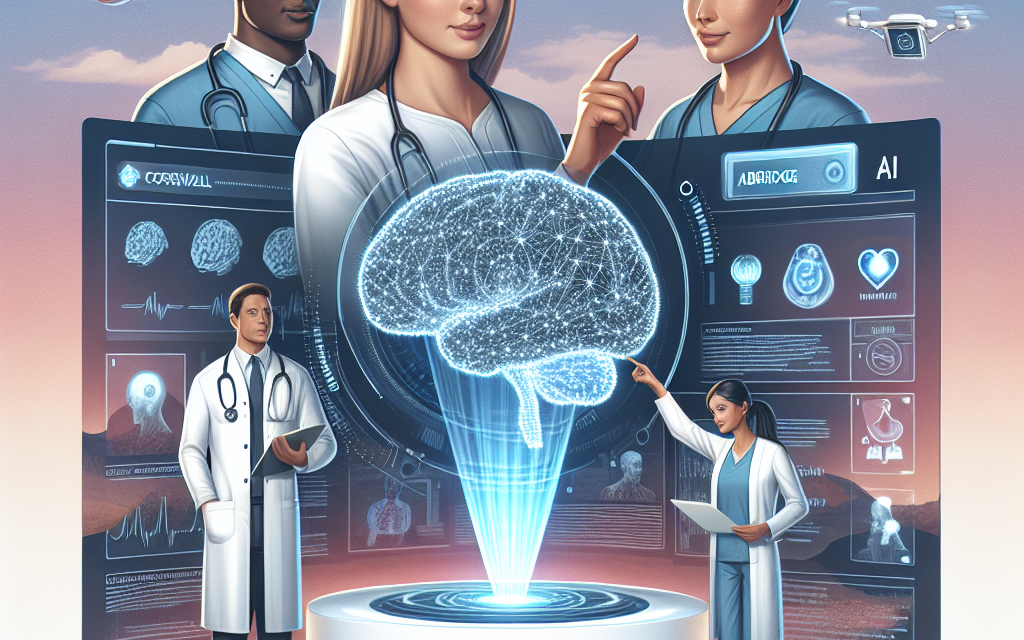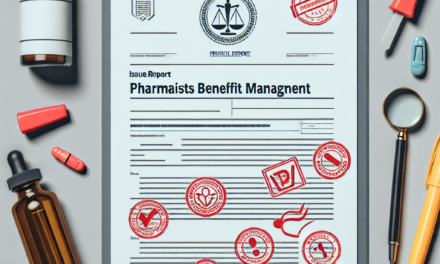Corewell Health Integrates Abridge’s AI Documentation Solution
In the rapidly evolving landscape of healthcare, the integration of artificial intelligence (AI) into clinical documentation is transforming how providers interact with patients and manage their records. One notable development in this arena is the partnership between Corewell Health and Abridge, a company specializing in AI-driven documentation solutions. This article delves into the implications of this integration, exploring its benefits, challenges, and the future of healthcare documentation.
Understanding Corewell Health and Abridge
Corewell Health, a prominent healthcare provider, is committed to delivering high-quality care through innovative solutions. With a focus on patient-centered care, Corewell Health aims to enhance the patient experience while improving operational efficiency. Abridge, on the other hand, is a technology company that leverages AI to streamline clinical documentation, making it easier for healthcare providers to capture and manage patient information.
The collaboration between these two entities represents a significant step towards modernizing healthcare documentation. By integrating Abridge’s AI capabilities, Corewell Health seeks to reduce the administrative burden on clinicians, allowing them to focus more on patient care rather than paperwork.
The Need for AI in Healthcare Documentation
The healthcare industry has long struggled with the challenges of documentation. Clinicians often spend a substantial portion of their time on administrative tasks, which can detract from patient care. According to a study published in the Annals of Internal Medicine, physicians spend nearly two hours on electronic health record (EHR) documentation for every hour spent with patients. This imbalance not only affects clinician satisfaction but also impacts patient outcomes.
AI documentation solutions like Abridge aim to address these challenges by automating the documentation process. Here are some key reasons why AI is essential in healthcare documentation:
- Efficiency: AI can significantly reduce the time clinicians spend on documentation, allowing them to allocate more time to patient interactions.
- Accuracy: AI algorithms can enhance the accuracy of clinical notes by minimizing human error and ensuring that critical information is captured.
- Standardization: AI can help standardize documentation practices across healthcare providers, leading to more consistent and reliable patient records.
- Data Utilization: AI can analyze vast amounts of data to provide insights that can improve patient care and operational efficiency.
- Patient Engagement: By streamlining documentation, clinicians can spend more time engaging with patients, fostering better relationships and improving satisfaction.
How Abridge’s AI Documentation Solution Works
Abridge’s AI documentation solution utilizes advanced natural language processing (NLP) and machine learning algorithms to automate the documentation process. The system is designed to listen to clinician-patient conversations and generate accurate clinical notes in real-time. Here’s a closer look at how this technology functions:
1. Real-Time Transcription: Abridge’s AI listens to conversations during patient visits, transcribing the dialogue in real-time. This feature ensures that no critical information is missed during the consultation.
2. Contextual Understanding: The AI is trained to understand medical terminology and context, allowing it to accurately capture the nuances of clinical discussions. This capability is crucial for generating meaningful documentation that reflects the patient’s condition and treatment plan.
3. Integration with EHR Systems: Abridge’s solution seamlessly integrates with existing EHR systems, ensuring that the generated notes are automatically uploaded to the patient’s record. This integration minimizes disruptions to the clinician’s workflow.
4. Customizable Templates: The AI can generate documentation based on customizable templates that align with the specific needs of different specialties. This flexibility allows healthcare providers to tailor the documentation process to their unique requirements.
5. Continuous Learning: Abridge’s AI continuously learns from interactions, improving its accuracy and efficiency over time. This adaptive learning process ensures that the system remains up-to-date with the latest medical practices and terminologies.
Benefits of Integrating Abridge’s AI Solution at Corewell Health
The integration of Abridge’s AI documentation solution at Corewell Health offers numerous benefits that can enhance both clinician and patient experiences. Here are some of the most significant advantages:
- Reduced Administrative Burden: By automating documentation, clinicians can spend less time on paperwork and more time with patients. This shift can lead to improved job satisfaction and reduced burnout among healthcare providers.
- Improved Patient Care: With more time available for patient interactions, clinicians can focus on delivering high-quality care. This increased engagement can lead to better patient outcomes and satisfaction.
- Enhanced Accuracy of Records: The AI’s ability to capture detailed and accurate clinical notes can improve the quality of patient records, reducing the risk of errors and miscommunication.
- Streamlined Workflow: The integration with EHR systems ensures that documentation is seamlessly incorporated into the patient’s record, streamlining the overall workflow for healthcare providers.
- Data-Driven Insights: The AI’s ability to analyze data can provide valuable insights into patient trends and outcomes, enabling healthcare providers to make informed decisions about care delivery.
For example, a study conducted at a large healthcare system that implemented AI documentation solutions found that clinicians reported a 30% reduction in time spent on documentation tasks. This time savings translated into more meaningful patient interactions and improved overall satisfaction scores.
Challenges and Considerations in AI Integration
While the integration of Abridge’s AI documentation solution presents numerous benefits, it is not without challenges. Healthcare organizations must navigate several considerations to ensure successful implementation:
- Data Privacy and Security: The use of AI in healthcare raises concerns about data privacy and security. Organizations must ensure that patient information is protected and that the AI system complies with regulations such as HIPAA.
- Training and Adoption: Clinicians may require training to effectively use the new technology. Resistance to change can hinder adoption, so organizations must invest in comprehensive training programs.
- Integration with Existing Systems: Ensuring that the AI solution integrates smoothly with existing EHR systems can be a complex process. Organizations must work closely with technology vendors to address any compatibility issues.
- Quality Control: While AI can enhance accuracy, it is essential to implement quality control measures to review and validate the generated documentation. This oversight ensures that clinical notes meet the required standards.
- Cost Considerations: Implementing AI solutions can involve significant upfront costs. Organizations must weigh the potential return on investment against the initial financial outlay.
Addressing these challenges requires a strategic approach that involves collaboration between clinical staff, IT departments, and leadership. By fostering a culture of innovation and continuous improvement, healthcare organizations can successfully navigate the complexities of AI integration.
The Future of AI in Healthcare Documentation
The integration of Abridge’s AI documentation solution at Corewell Health is just the beginning of a broader trend towards AI-driven healthcare solutions. As technology continues to advance, the future of healthcare documentation holds exciting possibilities:
- Increased Personalization: Future AI solutions may offer even more personalized documentation experiences, tailoring notes to individual clinician preferences and specialties.
- Enhanced Interoperability: As healthcare systems evolve, AI solutions will likely become more interoperable, allowing for seamless data sharing across different platforms and providers.
- Predictive Analytics: AI could evolve to provide predictive analytics capabilities, helping clinicians anticipate patient needs and improve care delivery.
- Broader Applications: Beyond documentation, AI may find applications in other areas of healthcare, such as diagnostics, treatment planning, and patient monitoring.
- Patient Empowerment: AI-driven solutions may empower patients by providing them with access to their health information and enabling them to participate more actively in their care.
As Corewell Health continues to integrate Abridge’s AI documentation solution, it sets a precedent for other healthcare organizations to follow. The potential for improved efficiency, accuracy, and patient engagement is immense, paving the way for a more innovative and effective healthcare system.
Conclusion
The integration of Abridge’s AI documentation solution at Corewell Health represents a significant advancement in the healthcare industry. By leveraging AI technology, Corewell Health aims to reduce the administrative burden on clinicians, enhance patient care, and improve the overall efficiency of healthcare delivery.
While challenges exist, the benefits of AI in healthcare documentation are clear. As organizations continue to embrace these technologies, the future of healthcare looks promising, with the potential for improved patient outcomes, increased clinician satisfaction, and a more streamlined healthcare system.
In summary, the collaboration between Corewell Health and Abridge is a testament to the transformative power of AI in healthcare. As this partnership unfolds, it will undoubtedly serve as a model for other healthcare providers seeking to enhance their documentation processes and improve patient care.





